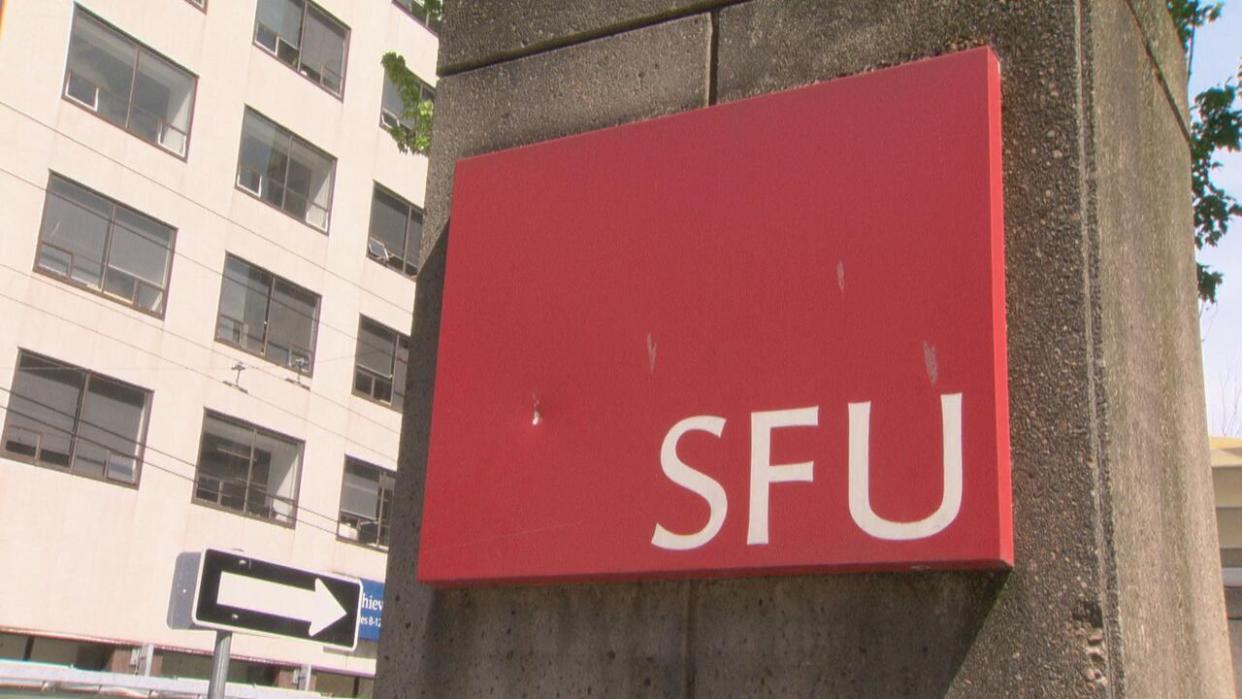SFU lays off dozens of employees, citing financial challenges

Simon Fraser University has laid off of dozens of staff across its three B.C. campuses in Burnaby, Vancouver, and Surrey.
The university said it eliminated approximately 85 jobs since Monday due to budgetary challenges. The positions include instructors, administrative support staff, and custodial workers.
SFU announced in April it would be restructuring areas of its operations, noting it would lead to administrative job losses. The university says it is supporting impacted employees in accordance with collective agreements and labour codes, but union leaders say the process lacked empathy and transparency.
Shaneza Bacchus, president of CUPE Local 3338, said she has been in wall-to-wall meetings with laid-off union members, some of whom had worked at SFU for decades.
"They felt dehumanized. They felt that their years of service didn't matter. One of them said they felt like they were treated like a criminal," Bacchus said.
In a statement to CBC News, SFU said the decline of international student enrolment, among other cost pressures, led to the changes. It says it is doing all it can to support people affected by the layoffs.
"As we move through these changes we are confident that this restructuring will ensure a stable and sustainable financial outlook for the university as we continue to prioritize teaching, learning and research," the university wrote.
The job cuts fall under three groups: CUPE Local 3338, which represents 1,100 members, the Teacher Support Staff Union (TSSU), and the Administrative and Professional Staff Association (APSA).
Bacchus says CUPE 3338's collective agreement has severance options and they are currently in negotiations with SFU for an enhanced severance package.
Number of laid-off employees is higher, say unions
Bacchus contests the number of laid-off employees disclosed by SFU, saying more than 85 employees were let go among CUPE 3338, TSSU, and APSA members.
She suspects SFU did not include custodial staff who work for Best Personnel Inc.
"It's very telling that they're not including those numbers, because while they're not direct employees of SFU, they are members of CUPE and they do matter on the SFU community."
She described custodial staff as "marginalized, precarious workers."
"The majority of them are new immigrants or immigrants. Many of them do not speak English as a first language and they are amongst the lowest paid, if not the lowest paid, within the SFU community," she said.
Bacchus said there were 23 employees laid off from Best Personnel, and another 27 under a different unit within the union.
Scott Yano, a steward for TSSU, says 16 of its members were laid off.
Lakshmi Gosyne, APSA's associate director of communications, added 35 of its members were laid off.
English Language and Culture program to close
The university will also shut down two programs dedicated to training oral and written English skills.
According to TSSU, The English Language and Culture program (ELC) will close by the end of the summer, while the Interpretation and Translation program (ITP) will end by next month.

Instructor Scott Yano with students enrolled at SFU's English Language and Culture program, which is set to close by the end of summer. (Thomas Saupique/CBC)
Scott Yano, an instructor for the ELC program, says he will be out of the job by the program's end. He said the university did not provide a proper explanation.
"[SFU] said it had something to do with the program not keeping up with current trends ... which is exactly the opposite of what we've heard from the interpretation community," Yano said.
Yano says the ELC and ITP programs have served as a pathway for international students at SFU. He notes the interpretation program is the last of its kind in the province.
"We have our own personal impact, but I think that this program has been providing a lot for the community," he said. "Our students go into other universities around the province and around the country and into businesses."
Yano is collecting testimonials from students on how the program has improved their proficiency in English and benefited their lives.


